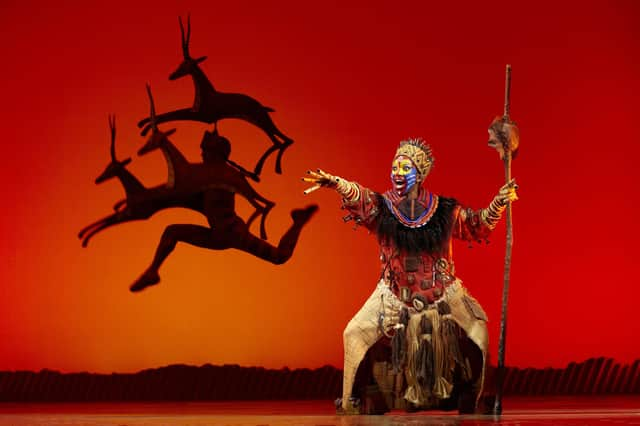Theatre reviews: Inheritance | The Lion King


Inheritance, Oran Mor, Glasgow ****
The Lion King, Playhouse, Edinburgh ****
In the debate on Scotland’s future, no issue is more important than land use, and the fate of the vast tracts of Scotland long written off as fit only for tourism, sheep and sporting estates; and the great virtue of Inheritance – a new play by Scottish actress Belle Jones – is that it plunges straight to the heart of the matter. Beside a crumbling drystone dyke on an estate in the Highlands, small farmer Donnie, a dour character who owns his own place, is debating the future of the glen with neighbouring tenant farmer Rhona, after the death of the reclusive old laird.
When the new laird appears, though, she defies all expectations; apparently the old man’s only child is a mixed-race American woman with a rollercoaster history of success and poverty, and strong views on not becoming a “landlord”.
Advertisement
Hide AdHer plan to give away the estate farms to their tenants and to start building self-sufficiency and employment in the glen through renewable energy projects and increasing food production is widely viewed with suspicion, which Donnie often articulates in the most unpleasant terms.
For the grieving and isolated Rhona, though, Heather’s project gradually becomes transformative, drawing her back into community life; and the play is strongly structured around this timeless battle between cynicism and self-belief, passivity and action, resignation and hope.
Helen Katamba delivers an impressive performance as the new laird, Heather, often overwhelmed by the complexity of what she has taken on; Ross Allan, and Jones herself, are equally persuasive as Donnie and Rhona.
And if the play allows itself a gleam of hope towards the end, its effect is all the more powerful for the clarity with which it recognises the obstacles to change, both in our society and economy, and in our hearts and minds.
The Disney blockbuster musical The Lion King, playing a month-long season in Edinburgh, is a show rarely discussed in terms of its themes, although some have seen echoes of Hamlet in its tale of a royal lion cub disinherited by his wicked uncle, Scar.
More often, reactions to it revolve around the gorgeous visual spectacle it offers, with a cast of 40 in astounding and inventive sculpture-like costumes, by Julie Taymor and Michael Curry, playing everything from elephants and giraffes to vast grassy plains and living forests, against dazzling African-sky backdrops, and a terrific accompaniment of song and chanting; and the UK touring production certainly fulfils all those expectations and more, foregrounding highly entertaining performances by Richard Hurst as Scar and Matthew Forbes as the courtier-bird Zazu, and a beautiful and profound one from Thandazile Soni as wise woman Rafiki.
Advertisement
Hide AdIn truth, though, the show also touches on themes to do with the stewardship of the land which are as fundamental in Africa as they are in the Scottish Highlands.
If Scar is a bad king, it is precisely because he allows his rowdy supporters, the hyenas, to over-hunt and to force others to do the same, leaving nothing but devastation and environmental collapse in their wake.
Advertisement
Hide AdThis is not only a powerful metaphor for bad government everywhere but a direct message about how barren our world may become if we do not learn to care for it better; and it would be interesting, 28 years on from Simba’s first film appearance, to see a stage version that placed that ever more urgent theme centre stage, alongside all the other glories of this spectacular and much-loved show.
Inheritance now at An Tobar, Tobermory, 21-23 June. The Lion King at the Playhouse, Edinburgh, until 2 July.